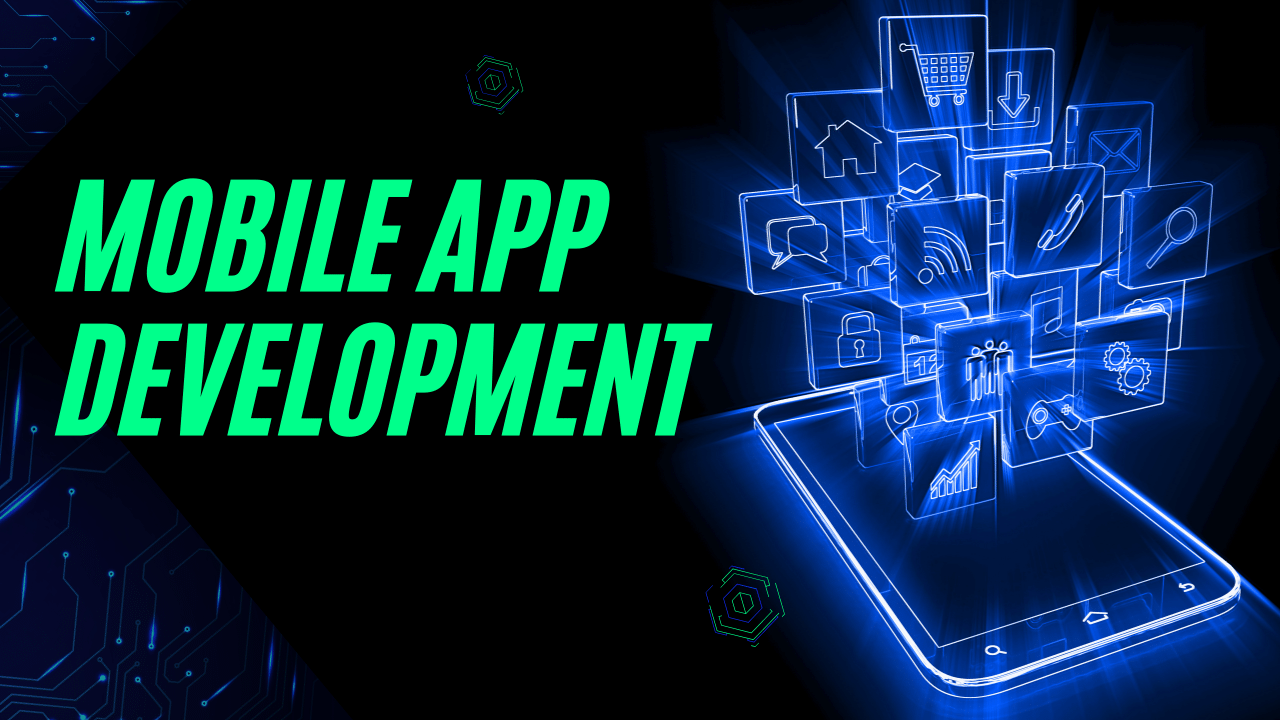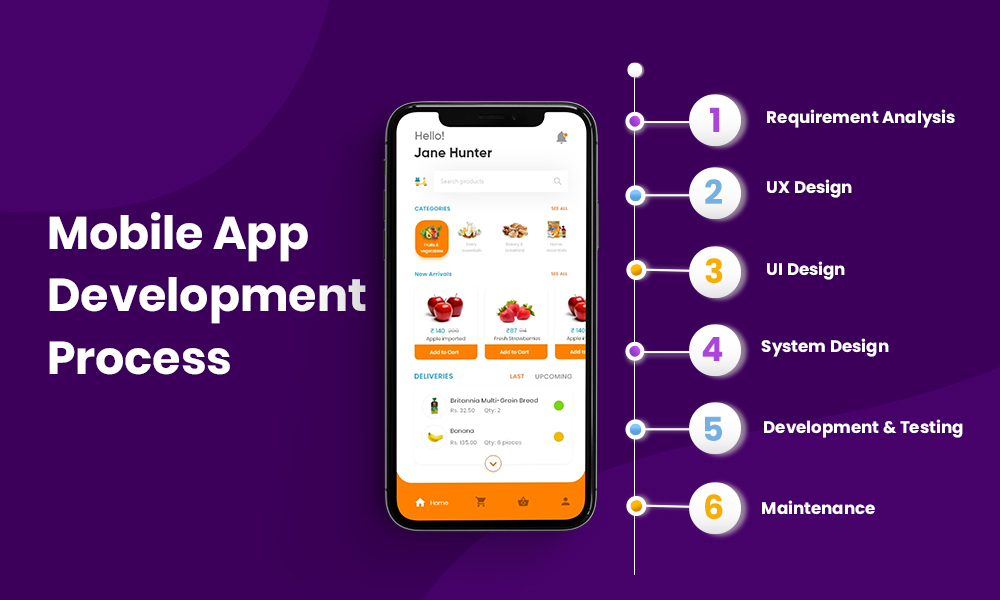
In the rapidly evolving digital landscape, custom mobile app development has become essential tools for businesses and individuals. Custom portable application development, specifically, offers customized arrangements that address explicit requirements and difficulties, paving the way for development and an upper hand. This article investigates the complexities of custom portable application development, from conceptualization to sending, and highlights its importance in the cutting-edge mechanical environment.
Understanding Custom Mobile App Development
Custom mobile app development refers to the process of designing and creating mobile applications tailored to the unique needs of a particular business or user base. Antithetical to off-the-rack arrangements, custom applications are worked on from the beginning, guaranteeing they adjust impeccably with the planned reason and client assumptions. This approach empowers organizations to coordinate interesting elements, upgrade client commitment, and improve functional proficiency.

The Importance of Custom Mobile Apps
- Personalized User Experience: Custom apps are designed with the end client in mind, giving a consistent and natural client experience. This personalization can further develop client fulfilment and maintenance.
- Competitive Advantage: A unique app that addresses specific pain points can set a business apart from its competitors. It can offer functionalities that are not accessible in nonexclusive applications, giving clients a convincing motivation to pick one over another.
- Scalability and Flexibility: Custom apps can be scaled and modified as a business develops. This adaptability guarantees that the application stays meaningful and practical over the long haul, introducing new elements and expanding client loads.
- Integration with Existing Systems: Custom apps can be designed to seamlessly integrate with an organization’s current programming and frameworks, working with smooth tasks and information streams across various stages.
- Enhanced Security: Security is a critical concern in mobile app development. Custom applications can be developed with cutting-edge security features customized to safeguard delicate information and exchanges intended for the business.
The Custom Mobile App Development Process
Developing a custom mobile app involves several stages, each requiring cautious preparation, execution, and joint effort among different partners. The accompanying advances frame a normal custom portable application improvement process:

1. Ideation and Conceptualization
The first step in custom mobile app development is ideation and conceptualization. This includes conceptualizing and characterizing the application’s motivation, leading interest groups, centre elements, and, generally speaking, targets. Critical exercises in this stage include:
- Market Research: Understanding the market landscape, distinguishing expected contenders, and evaluating client needs and inclinations.
- Defining Objectives: Clearly outline the goals and expected outcomes of the app, like expanding client commitment, driving deals, or working on functional proficiency.
- Initial Planning: Creating a rough outline of the app’s features, UI (UI), and client experience (UX) plan.
2. Requirement Analysis and Feasibility Study
Once the concept is defined, a detailed requirement analysis is conducted to determine the specialized and valuable determinations of the application. This incorporates:
- Technical Feasibility: Assessing the app’s technical aspects, such as stage similarity (iOS, Android, or both), outsider reconciliations, and equipment prerequisites.
- Functional Specifications: Documenting the app’s features, client work processes, information, and collaboration designs.
- Budget and Timeline: Estimating the cost and time required to develop the app, including likely dangers and possibilities.
3. Design and Prototyping
The design phase focuses on creating a visually intelligent portrayal of the application. Key exercises include:
- UI/UX Design: Developing wireframes and mockups to visualize the app’s layout, route, and client cooperation. This stage includes iterative input from partners to refine the plan.
- Prototyping: Prototyping involves building an interactive model to reproduce the application’s usefulness and client experience. It also involves early testing and approval of plan ideas.
4. Development
The development phase involves the actual coding and implementation of the app. This stage is usually separated into front-end and back-end advancements.
- Front-end Development: Creating the user interface and ensuring it is responsive, natural, and outwardly engaging. This incorporates coding the application’s screens, buttons, menus, and other intelligent components.
- Back-end Development: Building the server-side components, databases, and APIs that power the app’s functionality. This guarantees the application can handle information handling, client verification, and correspondence with different frameworks.
5. Testing and Quality Assurance
Testing is critical in custom mobile app development to guarantee the application is liberated from bugs and proceeds true to form. Key exercises include:
- Functional Testing: Verifying that all features and practicality work correctly.
- Usability Testing: Assessing the app’s user experience to protect it is natural and easy.
- Performance Testing: Evaluating the app’s speed, impartiality, and asset utilization.
- Security Testing: Guaranteeing the application’s security against possible dangers and weaknesses.
6. Deployment
Once the app has passed all testing and quality assurance checks, it is prepared for arrangement. This includes:
- App Store Submission: Publish the app on relevant app stores (e.g., Apple Application Store, Google Play Store) and guarantee it meets all rules and necessities.
- Server Sending: Setting up and designing the back-end framework to help the application’s tasks.
7. Maintenance and Updates
Post-deployment, the app requires regular maintenance and updates to keep it practical and significant. This incorporates:
- Bug Fixes and Enhancements: Address any issues reported by clients and add new elements or enhancements.
- Execution Streamlining: Ceaselessly check and improve the application’s presentation to guarantee a smooth client experience.
- Security Updates: Carrying out security fixes and updates to safeguard against arising dangers.
Challenges in Custom Mobile App Development
While custom mobile app development offers numerous benefits, it also comes with its own set of difficulties:
- Complexity and Cost: Developing a custom app from scratch can be complicated and costly, requiring critical interest in time and assets.
- Technical Expertise: Building a high-quality app requires specialized skills in different innovations and stages.
- Time to Market: Custom application improvement can be tedious, possibly deferring the send-off and showcase passages.
- User Adoption: Ensuring that users adopt and engage with the app can be testing, requiring compelling advertising and client onboarding techniques.
- Progressing Upkeep: Keeping up with and refreshing the application post-send-off requires constant exertion and assets.
Future Trends in Custom Mobile App Development
The landscape of custom mobile app development is invariably evolving, driven by automated progress and varying client belief. A portion of the critical patterns shaping the eventual fate of custom versatile application improvement include:
1. Artificial Intelligence and Machine Learning
AI and ML are transforming mobile app development by empowering discrimination highlights like customized proposals, prescient investigation, and standard language handling. Coordinating simulated intelligence and ML into custom applications can improve client encounters and drive development.
2. Internet of Things (IoT)
The proliferation of IoT devices is opening up new competition for custom mobile apps. Applications can now speak with many related contraptions, enabling functionalities like remote checking, keen home motorization, and persistent data assessment.
3. Augmented Reality (AR) and Virtual Reality (VR)
AR and VR technologies are gaining suction in mobile app development, offering vivid and intelligent encounters. Custom applications utilizing AR and VR can provide remarkable functionalities in regions like gaming, training, retail, and medical services.
4. 5G Connectivity
The rollout of 5G networks is set to revolutionize mobile app development by providing a quicker and more solid network. This will empower more intricate and information-fixed applications, such as top-quality web-based video, ongoing gaming, and expanded reality encounters.
5. Progressive Web Apps (PWAs)
PWAs offer a blend of web and mobile app experiences, giving users the advantages of both. They are available through internet browsers and offer application-like functionalities, such as disconnected access and pop-up messages. PWAs are becoming popular for organizations hoping to contact a more extensive crowd without requiring independent local applications.

6. Blockchain Technology
Blockchain technology is integrated into custom mobile apps to enhance security, transparency, and data integrity. Applications in finance, store network management, and medical care are especially profiting from blockchain’s abilities.

Conclusion
Custom mobile app development is a powerful tool for businesses and individuals hoping to make extraordinary, client-driven arrangements. While the cycle incorporates gigantic hypotheses and troubles, the benefits of uniquely crafted convenience, further developed client experience, and high ground make it worthwhile. As advancement continues to drive, the potential open doors for custom, adaptable applications are broadening, preparing for innovative and huge applications that can change organizations and further foster lives.
How long does it take to develop a custom mobile app?
The development timeline for a custom mobile app convertible application changes depending on the application's intricacy, the expansion of highlights, and the advancement group's mastery. It can take anywhere from 90 days to more than a year.
What are the main benefits of custom mobile apps?
Custom mobile apps offer personalized user experiences, versatility, consistent reconciliation with existing frameworks, and improved security customized to a business's particular requirements.


